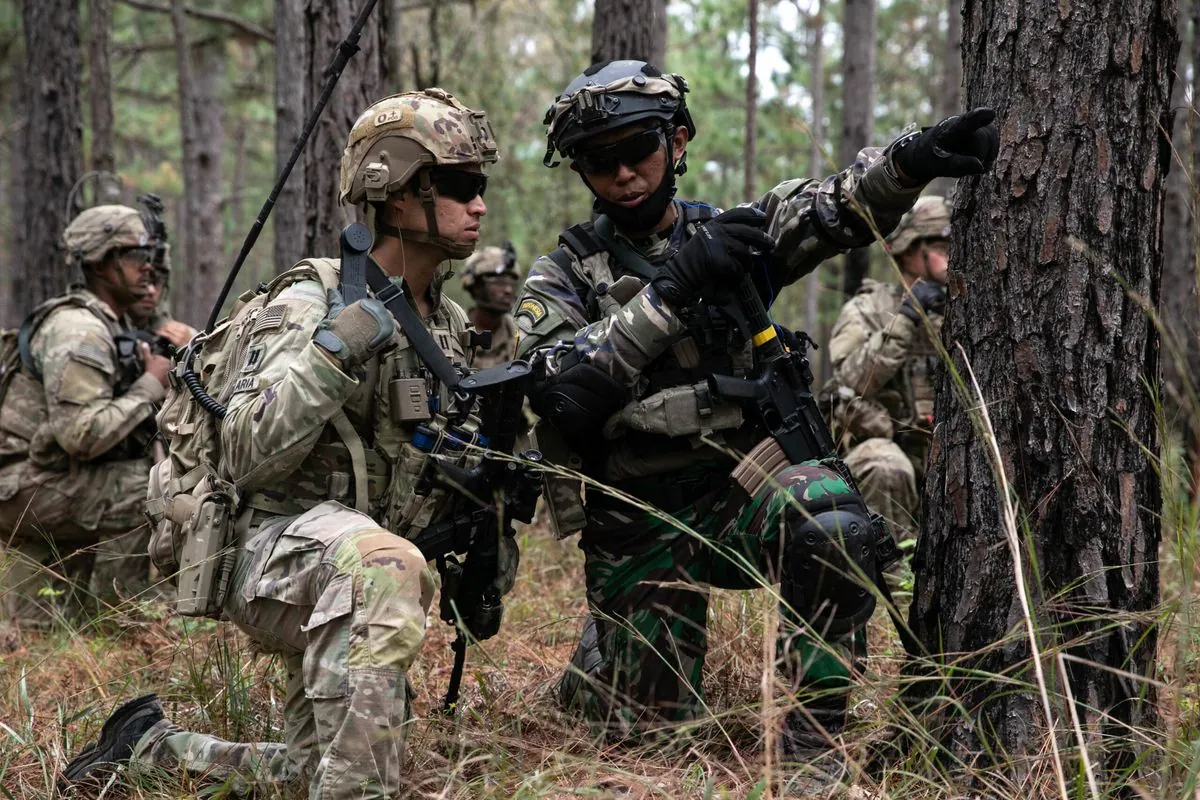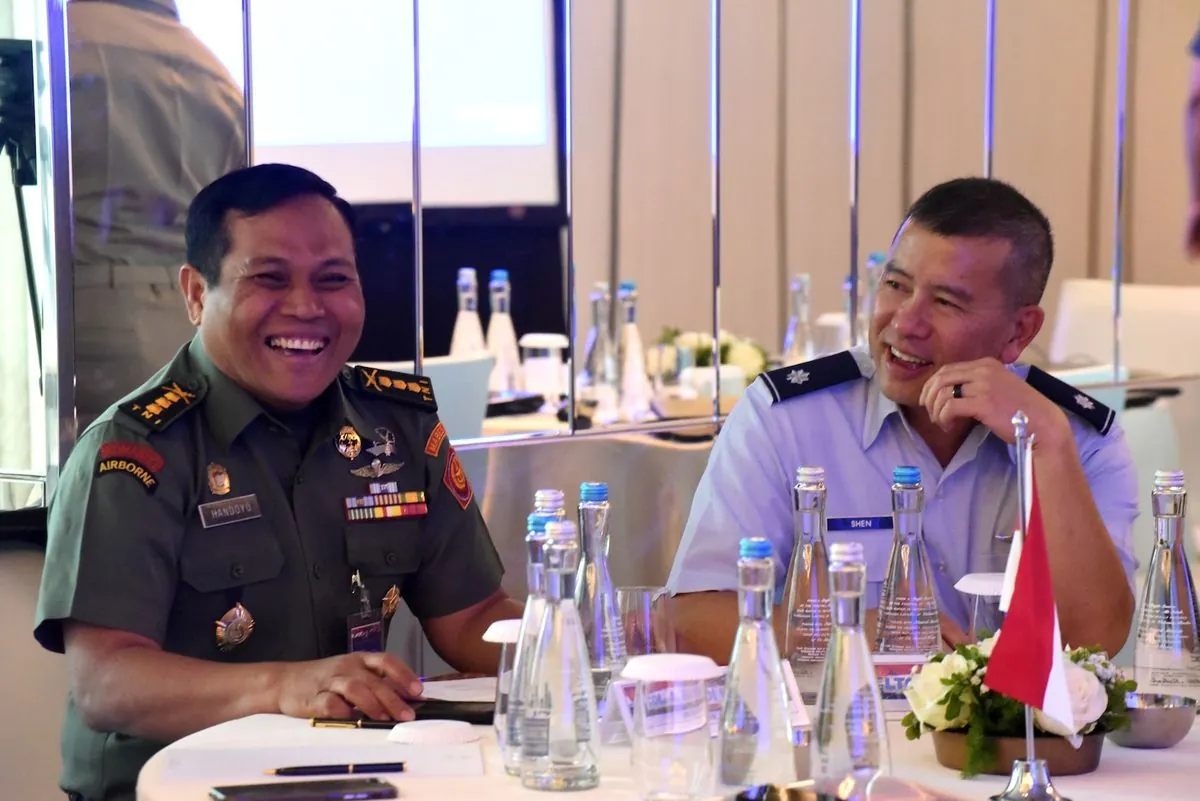Indonesia Hosts Multinational Military Drills Amid Regional Tensions
Indonesia and the US commence annual military exercises involving 4,500 personnel from multiple nations. The two-week event focuses on operational skills and cybersecurity amid growing regional concerns.

Indonesia, the world's largest archipelagic state, has initiated its annual military exercises with the United States, known as Super Garuda Shield. The event, which began on August 26, 2024, brings together over 4,500 personnel from various nations for a two-week training program.
The exercises, held since 2006, aim to enhance operational capabilities and foster international cooperation. Participants will engage in simulations including land and air operations, combat search and rescue, and logistics exercises. The drills are taking place in Sidoarjo, East Java province.
Rudy Hernawan, spokesperson for the Indonesian military, confirmed that troops from Australia, Japan, Britain, France, and New Zealand are participating, while Malaysia, the Philippines, and East Timor will observe the proceedings. This multinational approach reflects Indonesia's commitment to its "free and active" foreign policy, maintaining neutrality while engaging with diverse global partners.
A notable addition to this year's program is a joint exercise focusing on cybersecurity threats. This inclusion is particularly relevant given Indonesia's recent experiences with cyberattacks, including a significant incident in June 2024 that disrupted government services and major airport operations. As the world's third-largest democracy, Indonesia has been increasingly prioritizing its cybersecurity measures.

Indonesian military official Widyargo Ikoputra emphasized the importance of these exercises in building trust and strengthening bilateral and multilateral relations. This aligns with Indonesia's role as a key player in ASEAN and its history of mediating regional disputes.
The Super Garuda Shield exercises are taking place against a backdrop of geopolitical tensions, particularly between the United States and China. The South China Sea, a crucial shipping route through which an estimated one-third of global shipping passes, has been a focal point of these tensions. Southeast Asian nations have expressed concern over potential escalations, especially following recent incidents involving Chinese and Philippine vessels.
However, Rudy Hernawan clarified that the exercises are not related to the South China Sea disputes. He stated that the primary goal is to "increase military cooperation among countries, especially interoperability skills." This stance is consistent with Indonesia's official position of not being a claimant state in the South China Sea disputes, despite being a coastal state in the region.
The US-Indonesia Comprehensive Partnership, established in 2010, underpins these joint exercises, covering various areas including security cooperation. As Indonesia continues to modernize its military equipment and increase its defense spending, events like Super Garuda Shield play a crucial role in enhancing its military capabilities and international partnerships.
"The joint exercise is a way to build trust, as well as to strengthen bilateral and multilateral relations."
As the exercises progress, they serve as a testament to Indonesia's growing role in regional security and its commitment to maintaining stability in Southeast Asia. The inclusion of cybersecurity training also highlights the evolving nature of military preparedness in the face of modern threats.


































